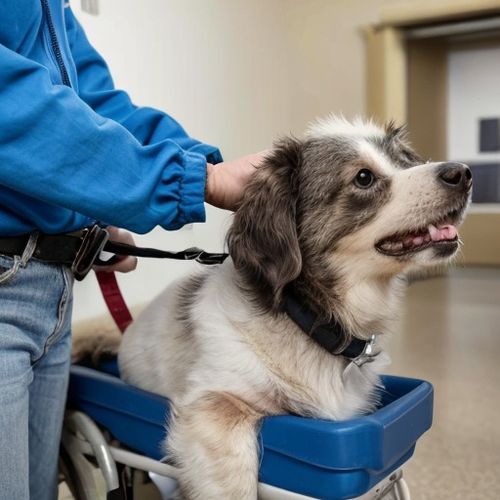The process of obtaining an Emotional Support Animal (ESA) certification in the United States has become increasingly relevant as more individuals recognize the therapeutic benefits these animals provide. Unlike service animals, which are trained to perform specific tasks for individuals with disabilities, ESAs offer companionship and emotional stability to those suffering from mental health conditions. The journey to securing an ESA letter involves navigating legal requirements, understanding the rights of ESA owners, and ensuring the well-being of the animal. This article delves into the intricacies of the ESA certification process, offering clarity for those considering this path.
Understanding Emotional Support Animals
Emotional Support Animals play a critical role in the lives of many individuals dealing with anxiety, depression, PTSD, and other mental health challenges. These animals are not required to undergo specialized training, but their presence alone can alleviate symptoms and provide a sense of comfort. The distinction between ESAs and service animals is crucial, as it affects the rights and accommodations available to their owners. While service animals are protected under the Americans with Disabilities Act (ADA), ESAs fall under the Fair Housing Act (FHA) and the Air Carrier Access Act (ACAA), which grant specific housing and travel privileges.
The first step in obtaining an ESA is recognizing the need for one. Many people mistakenly believe that any pet can be designated as an ESA, but the animal must genuinely contribute to the owner's emotional or psychological well-being. A licensed mental health professional (LMHP) must evaluate the individual and determine whether an ESA is a necessary part of their treatment plan. This evaluation is the foundation of the ESA certification process and ensures that the designation is not misused.
The Role of Licensed Mental Health Professionals
A licensed mental health professional, such as a psychologist, psychiatrist, or therapist, plays a pivotal role in the ESA certification process. These professionals assess the individual's mental health condition and determine whether an ESA would provide therapeutic benefits. The evaluation typically involves a detailed discussion of the individual's symptoms, treatment history, and how an animal might alleviate their distress. It is not a cursory process; the LMHP must establish a legitimate need for the ESA.
Once the LMHP concludes that an ESA is appropriate, they will issue an ESA letter. This document is the official certification and must include specific details, such as the professional's license number, the date of issuance, and a statement confirming the individual's need for the animal. The letter should also be written on the professional's letterhead to ensure its authenticity. Without these elements, the letter may not be recognized by landlords or airlines, leading to potential complications.
Navigating Housing and Travel with an ESA
One of the primary benefits of having an ESA is the protection it affords in housing situations. Under the Fair Housing Act, landlords are required to make reasonable accommodations for tenants with ESAs, even in properties with no-pet policies. This means that individuals with valid ESA letters cannot be denied housing or charged additional pet fees. However, landlords may request a copy of the ESA letter and verify its authenticity with the issuing professional. It is essential for ESA owners to understand their rights and be prepared to provide documentation when necessary.
Traveling with an ESA has become more challenging in recent years due to changes in regulations. Previously, the Air Carrier Access Act allowed ESAs to fly in the cabin with their owners without additional fees. However, as of 2021, airlines are no longer required to accommodate ESAs under the same provisions as service animals. Many carriers now treat ESAs as pets, subjecting them to standard pet policies and fees. Despite these changes, some airlines may still make exceptions, so it is advisable to check with the specific carrier before booking a flight.
Avoiding ESA Certification Scams
The growing demand for ESA certifications has led to an increase in online scams offering instant or fraudulent letters. These scams often target individuals who are unaware of the legitimate certification process, promising quick approvals without proper evaluations. It is crucial to recognize the red flags, such as websites that guarantee approval or offer certifications without involving a licensed mental health professional. A legitimate ESA letter can only be issued after a thorough evaluation by an LMHP.
To avoid falling victim to scams, individuals should research reputable sources and seek recommendations from mental health professionals. The cost of an ESA evaluation can vary, but excessively low prices or demands for upfront payments should raise concerns. Additionally, ESA registries or identification cards are not legally recognized and do not replace the need for a valid ESA letter. The only documentation required is the letter from a licensed professional.
The Responsibilities of ESA Ownership
While ESAs provide significant emotional benefits, owning one comes with responsibilities. ESA owners must ensure their animals are well-behaved and do not disrupt others, especially in shared living spaces. Although ESAs do not require specialized training, basic obedience and socialization are essential to maintain harmony in public and private settings. Landlords and neighbors have the right to expect that the animal will not cause damage or pose a threat.
Additionally, ESA owners should prioritize their animal's health and well-being. Regular veterinary care, proper nutrition, and adequate exercise are fundamental to maintaining the animal's quality of life. An ESA that is neglected or poorly cared for may not be able to fulfill its role effectively, undermining the very purpose of its designation. Responsible ownership ensures that both the individual and the animal benefit from the relationship.
Conclusion
Obtaining an Emotional Support Animal certification in the United States is a process rooted in genuine need and professional evaluation. While the benefits of ESAs are well-documented, the journey to certification requires diligence, awareness of legal rights, and a commitment to responsible ownership. By understanding the role of licensed mental health professionals, navigating housing and travel regulations, and avoiding scams, individuals can secure the support they need while upholding the integrity of the ESA system. As the conversation around mental health continues to evolve, ESAs remain a valuable resource for those seeking emotional stability and companionship.

By Sarah Davis/Apr 14, 2025

By James Moore/Apr 14, 2025

By Victoria Gonzalez/Apr 14, 2025

By Christopher Harris/Apr 14, 2025

By Megan Clark/Apr 14, 2025

By Benjamin Evans/Apr 14, 2025

By Emily Johnson/Apr 14, 2025

By Laura Wilson/Apr 14, 2025

By Victoria Gonzalez/Apr 14, 2025

By John Smith/Apr 14, 2025

By Jessica Lee/Apr 14, 2025

By Noah Bell/Apr 14, 2025

By John Smith/Apr 14, 2025

By Benjamin Evans/Apr 14, 2025

By Ryan Martin/Apr 14, 2025

By Megan Clark/Apr 14, 2025

By John Smith/Apr 14, 2025

By Natalie Campbell/Apr 14, 2025

By Noah Bell/Apr 14, 2025

By Lily Simpson/Apr 14, 2025